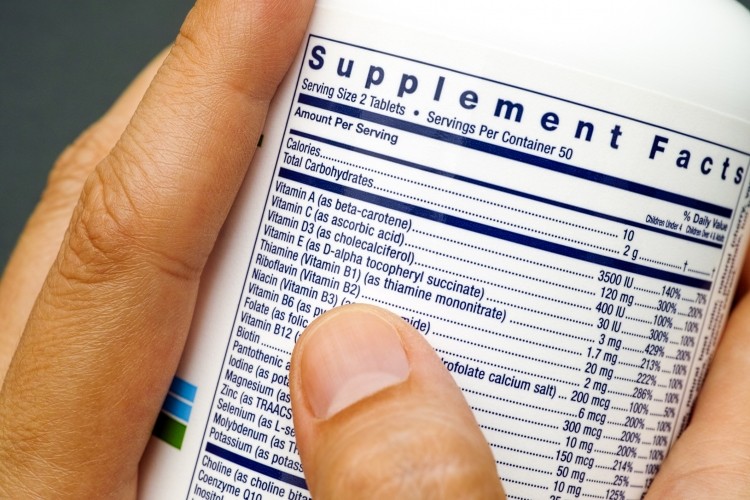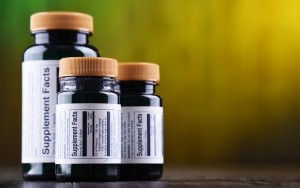Amazon’s dietary supplement specifications: “These requirements shouldn’t be terribly onerous”

Amazon announced sweeping new specifications for dietary supplements in December. NutraIngredients-USA was the first industry publication to report the specifications, which can be found HERE.
To summarize, the key aspects required by Amazon are:
1. A Certificate of Analysis (CoA) from an ISO/IEC 17025 accredited laboratory (in-house or third party) for each dietary supplement you are applying to list OR product enrollment in an Independent Quality Certification Program, such as NSF International Sport, BSCG, Informed-Choice/Informed-Sport, or active participants of USP Dietary Supplement Verification Program
2. A Letter of Guarantee from the brand owner of the product that guarantees compliance with current Good Manufacturing Practices (21 CFR Part 111); assurances that the products only contains lawful and safe ingredients (as defined in section 402 (f) of the FD&C Act); and that labels are accurate.
“These requirements shouldn’t be terribly onerous”
David Trosin, Managing Director of NSF Health Sciences Certification, told NutraIngredients-USA that he understands why Amazon has introduced these requirements.
“From a broader standpoint of retailers, the retailer trust programs that are already out there are not uniform, and that puts a burden on brands. Amazon had to start somewhere.
“What they’re calling out is what we should be doing already,” said Trosin. “These requirements shouldn’t be terribly onerous. It’s more paperwork for sure, but when you’re dealing with a new retailer you have paperwork anyway.”
Aaron Secrist, Executive Vice President of Quality, R&D and Operations, NOW Health Group, concurred, telling us: “Outside of the ISO/EIC 17025 requirement, there really isn’t anything that companies shouldn’t already be doing.
“Some companies that do the testing internally do not always produce an internal CoA for every batch they produce and might have the requisite finished product testing results and batch release on other cGMP documents such as batch production records, but all of the information will be there. It may take them some work to put it into a CoA format for external viewing.”
Elan Sudberg, CEO of Alkemist Labs, agreed, telling us: “We should already be here. When this thing started we had companies that we’d never heard of call us to ask about jimps and sopps, and we realized they were talking about GMPs and SOPs. They didn’t even know how to talk about these things. That’s amazing. This will help to clean up the industry.”
Amazon: “We have proactive measures in place to prevent suspicious, non-compliant, or prohibited products”
Amazon declined NutraIngredients-USA’s request for an in-depth interview, but an Amazon spokesperson did send us the following statement: “Selling Partners are required to comply with all laws and regulations, as well as Amazon’s policies including compliance and testing requirements. We have proactive measures in place to prevent suspicious, non-compliant, or prohibited products from being listed and we continuously monitor the products sold in our stores.
“For dietary supplements, we require certain product information to be shared, such as a certificate of analysis, to ensure customers can shop with confidence on our stores. We continue to partner with industry organizations to continuously improve our programs.”
The ISO issue
The ISO accreditation is one of the key requirements, but also one of the most contentious.
“The initial request was for the C of A to be from a 3rd party ISO/EIC 17025 accredited laboratory and now, after some consultation with industry, they have opened the door to in- house laboratories,” noted Secrist. “We believe this is a step in the right direction, but it doesn’t go quite far enough. NOW’s in-house labs are not currently ISO/EIC 17025 accredited but we are going through the process at the moment. We have had plans to do this for various reasons unrelated to the Amazon policy, but their requirement caused us to accelerate the process.”
Secrist added that NOW has some concerns about the ISO stance taken by Amazon. “Dietary supplement laboratories are not required to be ISO/EIC 17025 accredited but they are required to be cGMP compliant,” he said. “The FDA devoted an entire subpart of the Rule (21 CFR 111) to laboratory compliance (Subpart J). This is true for any laboratory, in-house or contract, used for testing of dietary supplement components or finished products.
“Having ISO/EIC accreditation does not necessarily mean that the laboratory will meet federal cGMP requirements. Even when a laboratory does have ISO/EIC 17025 accreditation, the scope is limited to specific testing in a specific product matrix or matrices.
“Additionally, ISO/EIC 17025 accreditation does not exist anywhere for all of the numerous methods needed for the dietary supplement industry especially when coupled with all of the various matrices. We believe a better indication of laboratory compliance is for companies to show a valid third-party cGMP certification from a legitimate and well-respected program such as SSCI, USP, UL or NSF where the laboratory is audited and certified to be in compliance with 21 CFR 111.”
Secrist added that, since dietary supplement third party contract laboratories are not inspected by the FDA for compliance with 21 CFR 111, ISO/EIC is probably an appropriate requirement in order for the laboratory to be deemed technically competent.
NSF’s Trosin agreed, calling it a starting point. “Amazon had to put something in place to qualify the scope of the testing that is done. Anyone can provide a CoA, so there must be a way to show that the CoA means something.
“The ISO issue provides something that goes beyond just, ‘Here’s our testing. Trust us, we’re good’,” he said.
“There are some amazing companies in this industry, but I’ve also been in some facilities that cause great concern, and in both instances the companies will tell you what high quality standards they have. The good players are judged by the least of us. And the lesser players can ride the coattails of the best companies.”
- David Trosin, Managing Director of NSF Health Sciences Certification
What do the labs say?
Alkemist Labs in Garden Grove, CA, does have ISO/IEC 17025 accreditation, with the evaluation process performed by American Association for Laboratory Accreditation (A2LA).
“There are different types of insurance companies – you could go with Jeff’s Discount Insurance or you could go with All State. It’s the same with accrediting bodies. We went with A2LA because they’re among the best. We know of other accrediting bodies who are ‘easier’, but we weren’t looking for that,” explained Sudberg.
“Just because a lab is ISO doesn’t mean they’re good. ISO is better than non-ISO, but you should still test and audit your labs.”
James Neal-Kababick, founder and director of Flora Research Laboratories, noted that when a lab is ISO, they have a scope of accreditation. “It’s not unusual to see one to three tests under their scope,” he said. “There are a lot of products that require testing that are not covered by ISO labs.
“The idea of Amazon is a noble idea to raise the bar on quality, and Amazon wants legitimate lab testing, but multi-component formulas require a lot more agility and flexibility and a lot of ISO labs are not going to do that.”
Flora is not currently ISO, and Kababick says he has no current plans to shoot for ISO accreditation, noting that his lab does a lot of specialty work and is picking up clients who have no Amazon footprint and who need the smaller tests. “I’m not super worried about losing out,” he said.
But he concedes that “ISO will become mainstream for labs in North America, but it is quite an investment”.
“One of the problems with the Amazon approach is that they’re putting an extra burden on legitimate companies. If it levels the playing field, then great, but I don’t think that’s what is going to happen. The bad actors will find a way around it.”
The Contract Manufacturer perspective
The specifications are also shining a spotlight on the role of contract manufacturers, but Mark Jost from Long Island, NY-based Gemini Pharmaceuticals, Inc., said the company’s conversations with clients have not really changed since the Amazon announcement late last year.
“Gemini’s Quality Partnership program with our clients set the stage for an easy response by them to the Amazon requirements,” Jost told us. “The key information the clients had to provide to Amazon , i.e, batch record information and raw material data, was already part of the documentation we share under our program. This coupled with the fact that Gemini’s in-house laboratory is ISO 17025 accredited made for an easy acceptance of Gemini’s CoAs and test data by Amazon.”
However, Jost acknowledged the biggest issue he’s seeing around the industry has been the requirement for extensive finished product testing to verify label claims. “For some companies, this has not been a problem as they have been doing the testing right along – either with their CMO or with a 3rd party laboratory.
“For others who have 20+ ingredients in the finished product (and some at very low levels), they have added a new phrase to their vocabulary – matrix interference. The ingredient is shown to be present in the correct amount according to the batch records but almost impossible to find via regular testing. This has created a dilemma for some Brand Owners that does not have a quick and easy solution.”
“By input”
The way around this lack of testing is to provide Amazon with either a CoA for the raw materials or additional information that can verify that the ingredients meet their specifications for identity, purity, strength, or composition. This is known as “by input”
Flora’s Kababick explained: “Some things that just aren’t readily testable. FDA made clear if you can’t do a test then they won’t require tests, but that comes down to scientific feasibility. Companies may fall back on input because they don’t want to invest in method development.
“It can cost $30,000 to develop testing, and all that for a product that may be cycled out in 12 months,” he noted.
Alkemist’s Sudberg is not happy about “by input”, calling it a “loophole”.
“The whole intention is to improve the quality of products,” he said. “By input just means you’re taking a calculator to the formulation. It’s a certificate of calculation. It doesn’t solve the problem.”
Supportive
Despite some concerns about the how, the stakeholders interviewed for this article were unanimously supportive of Amazon’s goal.
NOW’s Secrist said: “Given the serious quality problems we discovered by testing “no name” brands sold on Amazon, and disclosed to the industry throughout last year, better oversight of dietary supplement sellers on Amazon was desperately needed. Overall NOW Foods is very supportive of Amazon’s new dietary supplement seller requirements and we believe this to be a very positive step in the right direction.”
But there’s a but…
“Shady players in the industry will still be able to supply a certificate of analysis with ISO/EIC 17025 certification,” added Secrist. “Shady brokers, suppliers and ‘dry labbing’ third party labs have been doing it for decades. I believe the single most important step that Amazon could take is to hire a top-notch quality and regulatory professional to lead the charge and engage with the responsible industry to develop a system that will truly help weed out the illegitimate players selling on their platform because this problem is not going to go away.
“Much of what Amazon does seems to be behind closed doors and it is difficult to get face time with a decision maker. Publicly identifying a head of regulatory compliance at Amazon would help the responsible industry rally to help Amazon design a gatekeeping system that really works and isn’t simply a “paper tiger”.”
NutraIngredients-USA’s Spotlight on Amazon
This is part 1 in our series of articles about Amazon’s new dietary supplement specifications. Please click the link below to read part 2:
Amazon dietary supplement specs: ‘They make contracts start to matter,’ says lawyer

















